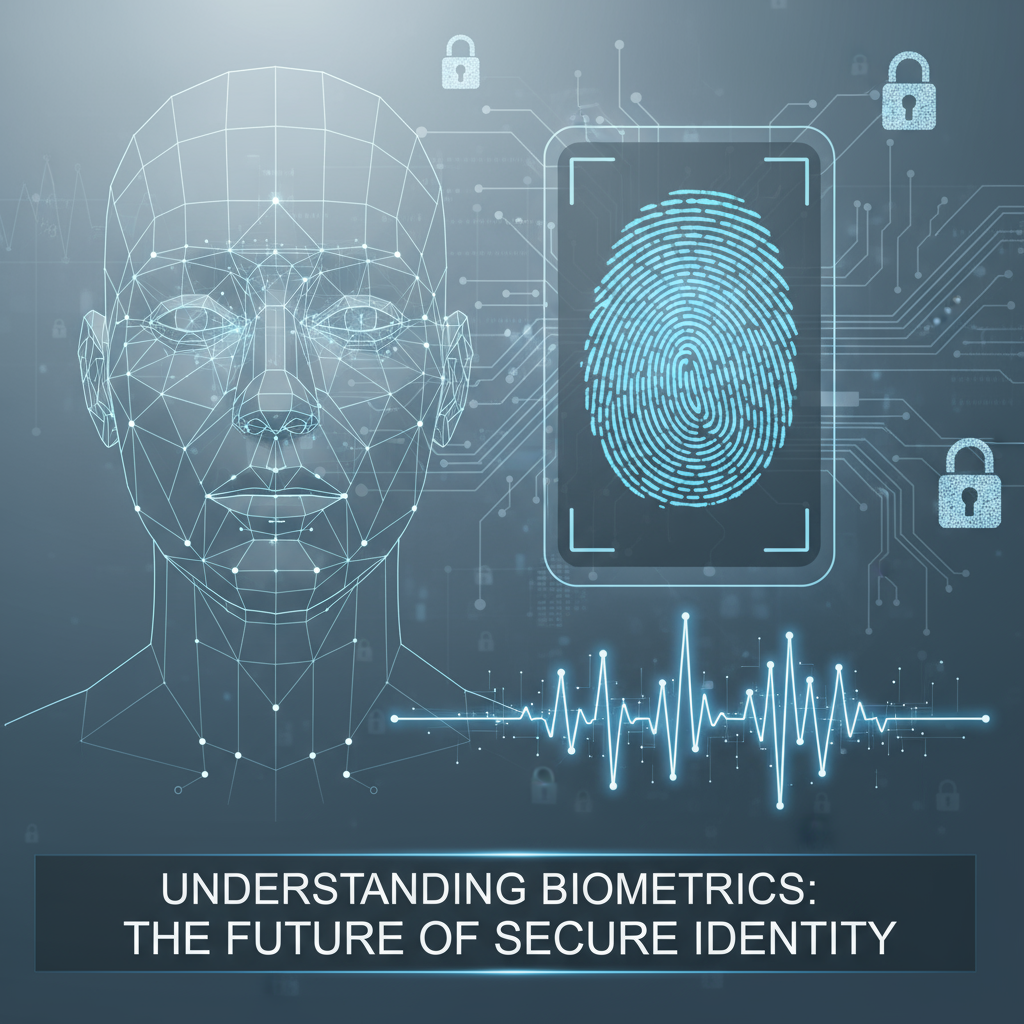Healthcare is one of the most critical sectors where accuracy, trust, and security can mean the difference between life and death. Yet, hospitals and clinics still struggle with patient misidentification, data breaches, and fraud. These challenges call for smarter, more secure systems of identification and verification. That’s where medical biometrics come in.
Biometric technology—already common in smartphones and border security—is now making waves in healthcare. From patient registration to telemedicine, biometrics in hospitals improve safety, reduce errors, and protect sensitive health data.
This blog explores what biometric medicine is, how biometric devices are used in healthcare, their benefits, challenges, and future potential.
Biometrics Are Coming to Healthcare: Why Now?
The rise of biometrics medical systems is driven by a combination of needs and trends:
- Digital health expansion: Electronic health records (EHRs), telemedicine, and Internet of Medical Things (IoMT) devices require reliable, secure authentication methods.
- Security concerns: Hospitals are prime targets for cyberattacks. Biometrics offer stronger protection compared to passwords or ID cards.
- Patient experience: Patients expect faster, safer, and more personalized services.
- Regulations: Governments worldwide demand stricter compliance for patient data privacy.
As a result, biometric medical solutions are no longer optional—they’re becoming essential.
Patient Misidentification: A Global Problem
Studies show that patient misidentification is a leading cause of medical errors globally. For instance:
- Duplicate patient records confuse doctors and delay treatment.
- Wrongly identified patients may receive incorrect medication or procedures.
- Fraudulent claims exploit weak identity systems, draining healthcare funds.
Biometrics in hospitals directly address this problem. By using fingerprints, facial recognition, or iris scans, patients are matched accurately to their medical records every time. This ensures safe treatment and eliminates dangerous errors.
Using Biometrics for Proper Patient Identification
Medical biometrics go beyond just logging data—they create unique digital identities for patients.
- Fingerprint scanning: Registers unique ridge patterns, ensuring accurate identification.
- Facial recognition: Quickly identifies patients even in emergencies.
- Iris and retina scans: Provide extremely high accuracy for sensitive cases.
Also Read: What is Automated Biometric Identification Systems
With these systems, hospitals can ensure that every prescription, treatment, or surgery is matched to the right patient. This level of biometric medicine reduces risks and builds trust.
The Process of Biometric Implementation
Biometric Registration
The process begins when a patient first enters the healthcare system. At registration:
- A biometric sensor input device captures data such as fingerprints, face, or iris.
- This is linked to the patient’s health records in the hospital database.
- The biometric template is stored securely for future use.
Biometric Identification
Later, whenever the patient visits again:
- The biometric system scans their physical traits.
- The scan is matched against stored templates.
- Identification takes place within seconds.
This simple but powerful process ensures biometric medical identification is both fast and reliable.
Real-World Applications of Biometrics in Healthcare
1. Patient Check-In and Registration
Instead of long queues and paperwork, patients can check in using a fingerprint or facial scan. This improves efficiency and reduces administrative errors.
2. Telemedicine and Remote Patient Monitoring
In virtual consultations, biometrics medical tools confirm the patient’s identity before appointments. Wearable devices with biometric sensors also monitor heartbeat, oxygen levels, or activity, linking data securely to healthcare platforms.
3. Access Control in Healthcare Facilities
Hospitals handle sensitive data and restricted areas such as ICUs, labs, or pharmacies. Biometric medicine systems ensure only authorized staff gain entry.
4. Clinical Trials and Research
Fraudulent participation can compromise trials. With biometrics, researchers confirm participants’ identities and maintain accurate data integrity.
5. Workforce Management
Biometrics in hospitals are also used for staff time and attendance tracking. Doctors and nurses can log in or out of duty shifts using fingerprint or iris scans, ensuring accountability and accurate payroll.
Benefits of Biometrics in Healthcare
Why are biometric medical systems gaining so much adoption? Let’s break down the major benefits:
Accurate Patient Identification
Medical biometrics eliminate duplicate records and ensure patients are matched correctly with their histories, prescriptions, and test results. This reduces life-threatening errors.
Enhanced Security of Electronic Health Records (EHRs)
EHRs contain sensitive information, from medical histories to insurance details. Biometrics provide multi-layered protection against hackers and unauthorized access.
Improved Access Control
Hospitals store valuable drugs and data. Biometric medicine systems restrict access to only approved staff, preventing theft and misuse.
Efficiency and Productivity
By removing paperwork, biometrics streamline hospital administration. Patients spend less time in queues, while staff focus more on care than clerical tasks.
Patient Empowerment and Convenience
Kiosks equipped with biometric scanners allow patients to check themselves in or access reports easily. This creates a modern, patient-friendly healthcare experience.
Fraud Prevention
Biometrics in hospitals prevent misuse of insurance or government healthcare benefits. Patients can’t impersonate others, and fraudulent claims are reduced.
Challenges in Biometric Adoption
Despite advantages, biometric medicine comes with challenges:
- Cost: Implementing large-scale biometric systems can be expensive.
- Privacy concerns: Patients may worry about misuse of sensitive biometric data.
- Integration issues: Older hospital systems may struggle to integrate new biometric solutions.
- Bias and accuracy concerns: Some systems may perform differently across demographic groups.
- Regulatory compliance: Laws like HIPAA and GDPR require strict handling of biometric data.
Hospitals adopting biometrics medical systems must address these challenges with clear policies, secure storage, and transparent communication with patients.
Future of Biometrics in Healthcare
The future of biometric medicine is promising, with emerging innovations on the horizon.
Multifactor Authentication
Combining biometrics with PINs or smart cards for even stronger protection.
Telemedicine and IoMT Integration
Biometric medical wearables will link patient vitals directly to cloud platforms for real-time monitoring.
AI-Powered Biometrics
Artificial intelligence will improve accuracy, reducing false positives and bias in biometric systems.
Smarter Healthcare Systems
Biometric medicine combined with predictive analytics can help doctors anticipate health risks and personalize treatment.
Conclusion
Biometrics in healthcare is not just about technology—it’s about saving lives, improving trust, and protecting privacy. From biometric medical registration to access control in hospitals, biometrics are transforming the way healthcare operates.
By solving the problems of patient misidentification and data breaches, medical biometrics create a safer and more efficient system for patients, doctors, and administrators alike. As technology advances, biometric medicine will continue to shape the future of healthcare—making hospitals more secure, patient experiences smoother, and treatments safer.
FAQs
How do biometrics improve patient safety in healthcare?
They ensure accurate patient identification, reducing misidentification errors and wrong treatments.
Are biometric systems secure enough for medical records?
Yes. Biometrics medical solutions use encryption and strict compliance standards to protect patient data.
What types of biometrics are most used in hospitals?
Fingerprint, facial recognition, and iris scans are most common in biometrics in hospitals.
Can biometrics prevent healthcare fraud?
Yes. Biometric medicine prevents identity theft and fraudulent insurance claims.
What is the future of biometrics in healthcare?
AI-driven systems, biometric wearables, and telemedicine integration will define the future of biometric medical technology.




